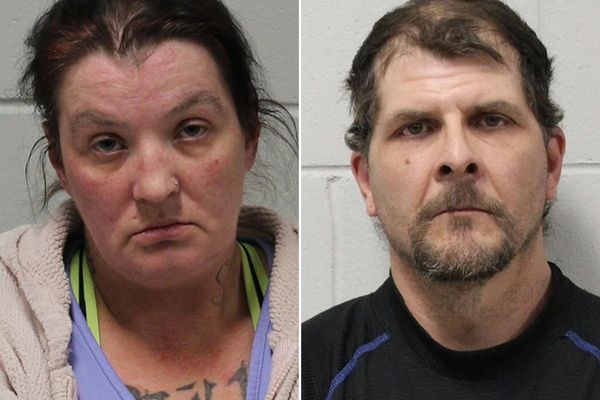
Has childhood been cancelled? Or rebranded as first-stage “old”; a last-chance saloon for preventive skincare? Inspired by social media, particularly TikTok, it appears children are adopting strict anti-ageing skincare regimes. It’s mainly girls, and they’re all shockingly young. Generation Z, younger teenagers, pre-teens and children, sometimes as young as eight, according to the British Association for Dermatologists.
The buzzword is “preventive”, as the young slap on moisturisers, peels and elixirs intended (and priced) for older people. They’re using the old favourite, pester power. Shocked mothers received Christmas wishlists pleading for creams and serums from brands like Drunk Elephant and others. Products sometimes cost upwards of £50 or £60. Some brands are so expensive mothers wouldn’t buy them for themselves.
It’s no surprise that social media (the great hypnotiser of the masses) is heavily implicated. Influencers are cited as the cause of this anti-ageing obsession and the consumer power of children is growing. When Piper Sandler, an investment bank, surveyed the shopping habits of nearly 9,200 teens last autumn, it found skincare spending had increased by 19%. Dermatologists report young people appearing with complex, inappropriate skincare routines, not to mention heightened anxieties, with one consultant dermatologist in London fielding teenage concerns about “crow’s feet”.
It’s all a galaxy away from my own gen X childhood “beauty regime”, which, if memory serves correctly, comprised Palmolive soap and a quick wipe with a flannel. Now youth skincare sounds like something from a Philip K Dick futuristic thriller. Fascination with Korean culture has resulted in quests for “K-Beauty” and (imperfection-free) “glass skin”. Just reading about all the “10-step” programmes (sheet masks, jade-rollers) could age you 20 years. The young watch Get Ready With Me (GRWM) TikTok videos and get up early to undertake laborious rituals before school. In 2023, a teenager went viral with her strict regimen, which she started at 12 years old. Among all the usual potions and exertions, she taped paper to car windows to keep out the sun.
So, first 20-year-olds are pushed into getting preventive Botox, now the industry has come for the very, very young. There’s even a Dior skincare range for babies. Unsurprisingly, the Kardashians are in the mix: Kim and Kourtney’s daughters (10-year-old North West and 11-year-old Penelope Scotland Disick) shared videos of their skincare routines. Other young people have been dubbed “Sephora Kids” because they hang around the beauty stores, asking for advice and manhandling the testers, sometimes stalking adult customers, waiting to swoop like tiny, shiny-skinned gannets when they put down products they want.
Dermatologists say that, while some youngsters need supervised help (say, with acne), for most, sun-protection, hygiene and, in teenage years, light moisturising is more than sufficient. Instead, the collagen-plumped young use products from some brands (pumped with retinoids, AHAs and BHAs) intended for wrinkles, fine lines and hyperpigmentation. They could cause irritation, flakiness, sun-sensitivity, even long-term damage, especially when mixed incorrectly. Drunk Elephant has posted on Instagram explaining that some of its products aren’t suitable for younger customers.
All this seems beyond standard youth trends and peer pressure, going into a disturbing new realm of perfectionism, poor self-image and obsession. Of course, anti-ageing is a staple of the beauty industry (Vantage Market Research projected a value of $106.6bn for the global anti-ageing market by 2030). But this is generation Alpha, who are born, or will be born, between 2010 and 2025. They are children. How can it be that they’re so joylessly fixated on forming a laughter line in 20 years’ time?
Then there’s our own ethical small print to consider. How did we manage to breed a generation who are spending their precious childhoods terrified of ageing?
This is where casting around for blame for the oxymoronic anti-ageing youthquake becomes complicated. In the dock, you’ve got social media and the beauty industry. However, you’ve also got a society full of people increasingly unable to accept the sight of themselves unfiltered. An era of such unrealistic, impossible standards that people are arriving at plastic surgeons not with photos of celebrities, but with their own filtered/facetuned dewy-skinned images.
All of which leads to another sinister contributory factor, best summed up by the phrase “monkey see, monkey do”. As shocking as it seems that children are buying into anti-ageing mass hysteria, perhaps it’s the inevitable end game of our ageist culture. Where growing older (and looking it) means you’re finished. Where the elderly are stigmatised and youth is the only acceptable state. All things considered, how surprising is it that such distorted, corrosive values have burrowed into vulnerable, malleable young brains?
What now? Do we just accept that some kids won’t bother “doing” childhood any more? They’ll just go into a state of premature adulthood, doing the most ageing thing of all: worrying about ageing. Or will responsible parents keep doing their best to slap small paws away from the acid-peels and moisture-surges they definitely don’t need? Sure, it’s about social media, the regular media and the beauty industry, but it doesn’t stop there. If nine-year-olds are scared of ageing, that’s also on us. This was their age of innocence, and we blew it for them.
• Barbara Ellen is an Observer columnist
• Do you have an opinion on the issues raised in this article? If you would like to submit a letter of up to 250 words to be considered for publication, email it to us at observer.letters@observer.co.uk







